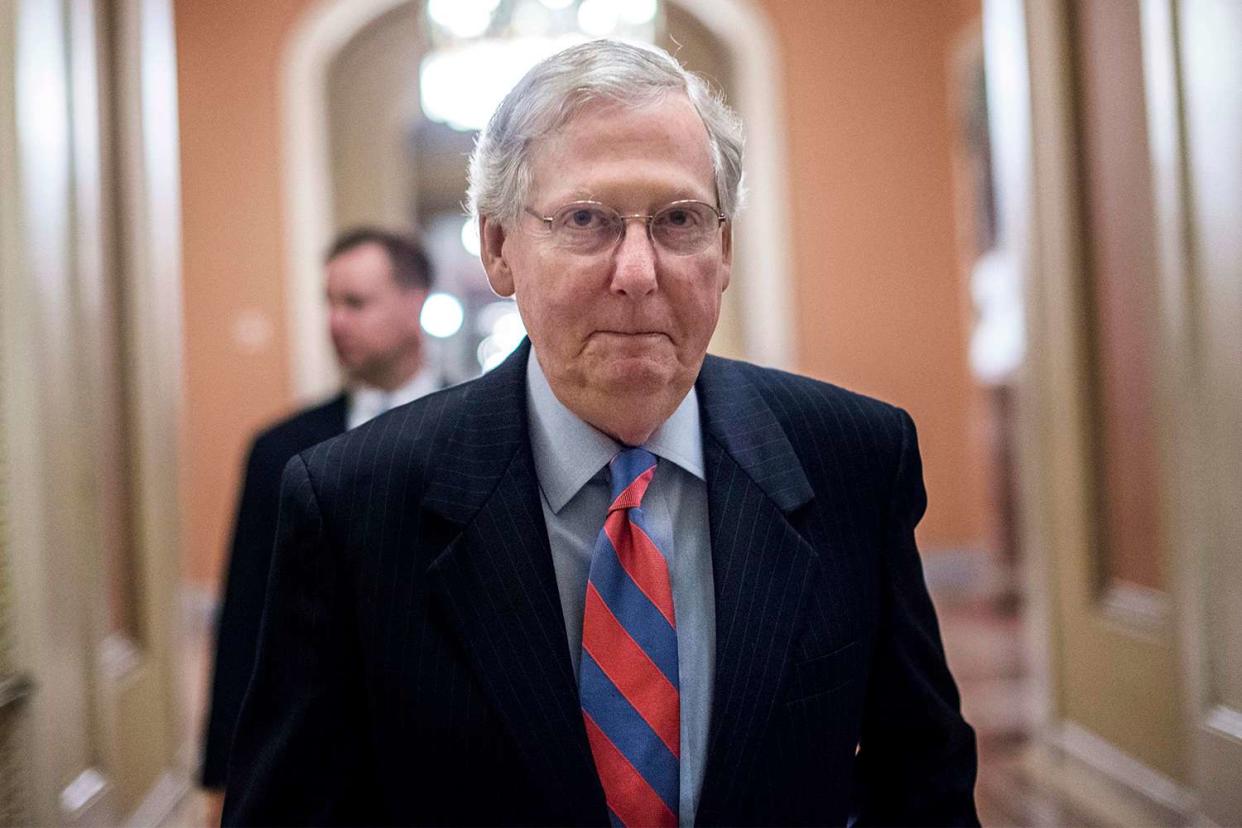Mitch McConnell Reelected as Republican Senate Leader, Defeating Challenger Rick Scott

- Oops!Something went wrong.Please try again later.
Melina Mara/The Washington Post via Getty Mitch McConnell
Kentucky Sen. Mitch McConnell has defended his position as the top Senate Republican, defeating challenger Rick Scott in Wednesday's GOP leadership election.
McConnell, 80, has steered the Senate Republican Conference since 2007, making him the caucus's longest-serving leader. With his reelection, he's on track to become the longest-serving Senate leader of any party — the current record, held by Democrat Mike Mansfield of Montana, is 16 years.
Though he's long been favored for the post, McConnell faced criticism from some fellow Republicans who argued he didn't best represent the caucus. The criticism was amplified during the midterm season when he suggested that the quality of the Republican Senate candidates this year may lose them the chance to take control of the Senate.
Sen. Scott from Florida fought back, telling Politico in August, "Sen. McConnell and I clearly have a strategic disagreement here … We have great candidates."
"He wants to do the same thing I want to do: I want to get a majority," Scott, 69, continued. "And I think it's important that we're all cheerleaders for our candidates."
Never miss a story — sign up for PEOPLE's free daily newsletter to stay up-to-date on the best of what PEOPLE has to offer.
The night before the midterm election, former President Donald Trump — a political rival of the minority leader's — told his supporters at a rally that Scott should be considered as a replacement for McConnell.
By this week, Scott had formally announced his bid to challenge McConnell, ultimately falling short of the votes needed.
RELATED: Trump Calls for New GOP Senate Leadership, Suggests Replacement for Mitch McConnell
Other leadership positions within the Senate Republican Conference were also determined Wednesday. Sen. John Thune of South Dakota will continue in his role as Senate minority whip, the number two position, and Sen. John Barrasso of Wyoming will continue in the third-ranking post as chair of the Senate Republican Conference.
Additionally, Sen. Joni Ernst of Iowa will now chair the Republican Policy Committee, replacing outgoing Sen. Roy Blunt of Missouri. Sen. Shelley Moore Capito of West Virginia will replace Ernst as vice chairwoman of the Senate Republican Conference. And Sen. Steve Daines of Montana will chair the National Republican Senate Committee, replacing Sen. Scott.

